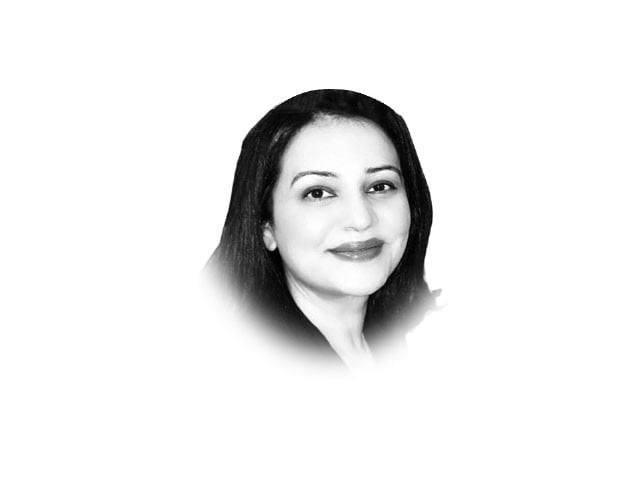Normalising the lives of divorced women and mothers in Pakistan
It is reassuring to see persuasive voices on women’s rights and marital status among Generation Z and the Millennials

The structural patriarchy in Pakistan is unending. As if women, especially those with overlapping vulnerabilities, do not face enough injustices, transgressions and oppression, the public sector has recently added one more. The newly emerged controversy in Pakistan centres on the naming rights of married women on passports, highlighting issues of institutional discrimination and inconsistent identification practices. According to broadcasted news items, the Director General of Immigration and Passports pointed out a policy inconsistency where married women must choose between listing their husband’s or father’s name on their passports, which differs from the National Database and Registration Authority’s (NADRA) approach. Although women can include their husband’s name or, if divorced, an ex-husband’s name, this does not address the broader issue of women’s autonomy in choosing their preferred identification name. In response, Interior Minister Mohsin Naqvi has created a committee, led by the Interior Secretary, to review and reform passport policies for women, aiming for solutions that respect women’s legal rights and provide equitable treatment. While the formation of an all-male panel to deliberate on a female issue is ironic in itself, I would take this “hysterical moment” to reflect on relatively recent history.
In the last decade of the 20th century, I started noticing and analysing the stigma and shame associated with the marital status of a woman in Pakistan. The catalyst was my own experience of obtaining a khula, for which there is no equivalent English word. I found that in all job applications, I had to submit my “divorce certificate”. I was young, sensitive and extremely naïve. Upon recognising the pity, speculation and more in the eyes of the FPSC interviewers on multiple occasions, I decided to stop pursuing government jobs, which were already difficult to obtain due to the lack of a service structure for medical doctors and the dominance of domicile and sifarish culture over transcripts, test and interview performance. Moving forward, I somehow gained a bit of stability as the first solo anchor for live morning transmissions on PTV. This key achievement did not act as protection from unwarranted attention by many journalists and media colleagues who gauged my worthiness on the parameter of my unsuccessful marriage. This attitude infiltrated nearly every area of my personal and professional life. For instance, simply mentioning and documenting my marital status at the driver’s licence office or the tax office resulted in blame, shame and intrusive curiosity. To my dismay, when I pursued my postgraduate degree and advanced courses in Europe and the UK, their High Commissions also inquired about my ex-husband. Finally, at the advent of the 21st century, I got my first opportunity to present an academic paper at a conference in the US, only to find that the visa application form also required details about my ex. Fortunately, I was not overpowered by the trauma of such experiences. I gradually recognised that society morphs resilience into defeat and normalises abuse.
By that time I began to approach financial independence with a feminist lens. That endeavour exposed that all schemes of regular income on savings by public banks offer greater premiums for widows and women above 60. However, to date, no such packages exist for young divorced or abandoned single mothers or for those who may never get married according to conventional standards after crossing the 40th birthday milestone. I continued dissecting the sympathy allocated to women in Pakistan based on their marital status. My research showed that it upsurges in the following order: divorced and disabled mothers, divorced and disabled women, never married women, and divorced women. I almost went into a state of shock when I learned that in Pakistan a widow, no matter how wealthy she is, is exempted from property tax on the property she occupies, whereas women with other marital statuses do not have the same “concession or compassion” from the government. This was perhaps the epitome of a patriarchal mindset.
Finally, I authored a book entitled A Tax Break for Economic Freedom: The Case of Divorced Mothers, Divorced Disabled, and Never Married (Above 40 Years) Pakistani Women — A Civic Entrepreneur’s Perspective in 2010. Its publication was gratefully supported by the German Foundation Friedrich Naumann Stiftung, which was then headed by Mr Olaf Kellerhoff, who was kind enough to give me an appointment and empathise with the perspective I was trying to communicate. The book was distributed free of cost, but the ideas presented never claimed their space in public policy. Rather than confronting the men who put women in complicated situations, the state and society target marginalised women, who pay the price for their determination and defiance.
It is reassuring to see the persuasive voices on women’s rights and marital status among Generation Z and the Millennials. What was hushed then is now heard across all forms of media. Media is bringing about a silent revolution. Yet, our public sector organisations seem to be on a different frequency and are not ready to dismantle endemic, epidemic and pandemic patriarchy. Some powerful international players, identified as technical and aid agencies, are also looking into the ease of doing business for women and the empowerment of women in greater detail with an intersectionality lens. Nothing can be successful without terminating institutional discrimination. The very first step is destigmatising divorced women and mothers through well-researched and empathetic messaging. I wish our legislators and heads of women’s organisations had the will and capacity to look into these important aspects of gender equality that also determine the extent of national development and security.















COMMENTS
Comments are moderated and generally will be posted if they are on-topic and not abusive.
For more information, please see our Comments FAQ